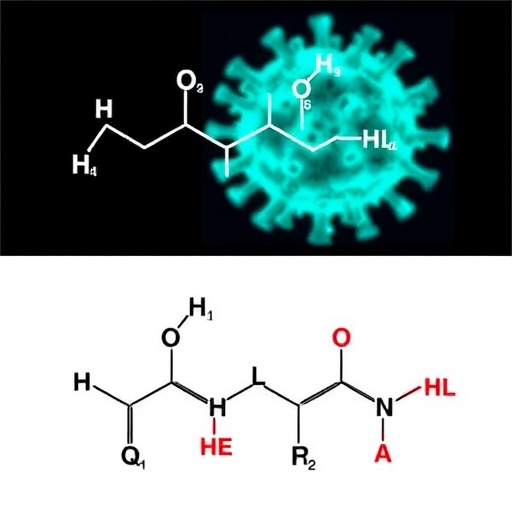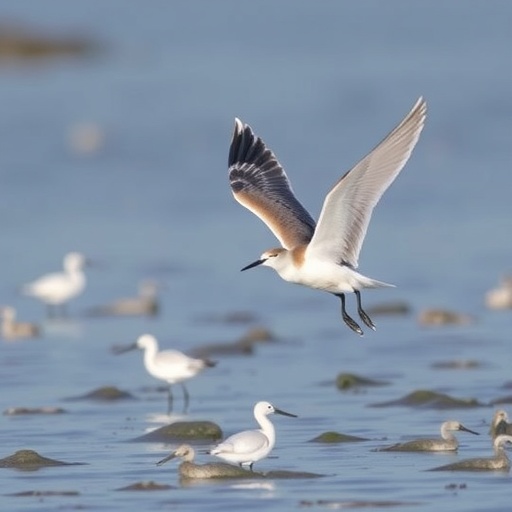PROTECT YOUR DNA WITH QUANTUM TECHNOLOGY
Orgo-Life the new way to the future Advertising by AdpathwayIn the vibrant tapestry of Indonesia’s biodiversity, freshwater turtles stand out as a unique ecological element. In a recently published study, researchers Vincent Nijman and C. R. Shepherd delve into the legal trade of freshwater turtle meat within Indonesia, revealing complex dynamics that pose significant implications for both conservation efforts and local livelihoods. This article not only sheds light on the intricacies of this trade but also questions the underlying economic structures that support it.
Freshwater turtles, known for their ecological roles in aquatic ecosystems, have increasingly found themselves amid human interest and exploitation. As the pressures of overharvesting and habitat destruction rise, understanding the economic factors driving the legal trade becomes crucial. The study emphasizes that while some collectors engage in this trade for income, the overall contribution to their livelihoods remains marginal. This points to a larger question regarding the sustainability of practices that may not yield significant benefits but carry substantial ecological costs.
The research meticulously dissects the legal frameworks governing the turtle meat trade in Indonesia. It provides critical insights into how laws are enforced, and the challenges faced by regulatory bodies in monitoring the trade effectively. Given the vast geography of Indonesia, the implementation of these laws remains an uphill battle. This raises concerns about the efficacy of existing regulations designed to protect these vulnerable species from overexploitation and eventual decline.
Nijman and Shepherd gathered data through extensive fieldwork and interviews with local collectors, revealing that a small faction participates in the trade predominantly for supplementary income. This raises pertinent questions about the motivations behind engaging in such trades when the financial returns are minimal. The study suggests that collectors may be driven by cultural practices and communal traditions surrounding the consumption of turtle meat rather than economic necessity, which complicates the narrative around the trade’s profitability.
Furthermore, the study highlights the ecological implications of turtle meat consumption. Freshwater turtles play vital roles in their ecosystems, contributing to nutrient cycling and maintaining healthy aquatic environments. A decline in turtle populations could lead to unforeseen consequences for these ecosystems, prompting a call for more sustainable practices and comprehensive conservation efforts. The researchers assert that understanding the ecological roles of freshwater turtles is fundamental to framing discussions about their trade.
While the focus on legal trade highlights the regulatory aspects, it’s essential to consider the illegal dimensions of the freshwater turtle trade that persist alongside sanctioned practices. The existence of a black market poses significant risks to populations already under threat from legal harvesting. The authors suggest that without a robust and enforced legal framework, the progression from legal to illegal harvesting may become a slippery slope that could jeopardize conservation efforts.
Nijman and Shepherd’s findings resonate with broader conversations regarding wildlife trade and its implications for biodiversity conservation. The global awareness surrounding wildlife trafficking has intensified, with numerous organizations advocating for comprehensive approaches toward animal conservation. Studies like these serve as critical resources for policymakers and conservationists, providing data-driven insights that can inform strategies for protecting endangered species, particularly in regions rich in biodiversity like Indonesia.
In addition, the article touches on the socio-cultural aspects of turtle consumption in Indonesia. Turtles have been a part of traditional diets for various ethnic groups, reflecting a mix of cultural heritage and culinary practices. This enhances the complexity of the issue, as efforts to curb the trade must consider cultural sensitivities and the potential discontent that arises from challenging long-standing traditions.
The conversation surrounding freshwater turtle meat trade must also extend to community engagement and education. Empowering local communities with knowledge about the ecological importance of turtles and the adverse effects of their exploitation may facilitate a shift in mindset toward conservation. Education initiatives can play a pivotal role in fostering sustainable alternatives that offer economic incentives without compromising biodiversity.
Another critical aspect brought forward by the research is the importance of geographic diversity in understanding the trade. Different regions within Indonesia may exhibit varying levels of reliance on turtle meat, shaped by local practices, accessibility to resources, and economic conditions. This geographical perspective underscores the necessity of tailored interventions that consider local contexts when addressing wildlife trade issues.
The economic landscape surrounding the freshwater turtle trade is multifaceted and varies not only by region but also by consumer demand and market dynamics. This variability is a crucial factor that must be included in any sound analysis of the trade’s impact on local livelihoods. Recognizing these economic realities can inform more effective policies that either support legitimate trade practices or strengthen enforcement against illegal trading activities.
As the insights from Nijman and Shepherd suggest, the legal freshwater turtle meat trade in Indonesia, while present, is not a substantial economic driver as previously thought. This presents an opportunity to pivot discussions toward enhancing conservation efforts, promoting sustainable practices, and exploring alternative livelihoods that do not jeopardize the ecological health of vital species. The narrative being built around this trade can thus become a catalyst for positive change in both ecological and economic frameworks.
In conclusion, the complexities surrounding the legal freshwater turtle meat trade in Indonesia reflect broader global challenges in wildlife conservation. As the balance between human economic activity and ecological sustainability continues to be tested, research like that conducted by Nijman and Shepherd plays an instrumental role in informing actions aimed at safeguarding both cultural heritage and biodiversity. The journey towards a sustainable coexistence between humans and wildlife demands ongoing dialogue, innovative solutions, and unwavering commitment from all stakeholders involved.
Subject of Research: Freshwater Turtle Meat Trade in Indonesia
Article Title: Legal freshwater turtle meat trade in Indonesia only marginally contributes to collectors’ livelihoods.
Article References:
Nijman, V., Shepherd, C.R. Legal freshwater turtle meat trade in Indonesia only marginally contributes to collectors’ livelihoods.
Discov Anim 2, 17 (2025). https://doi.org/10.1007/s44338-025-00062-1
Image Credits: AI Generated
DOI: 10.1007/s44338-025-00062-1
Keywords: Freshwater turtles, wildlife trade, Indonesia, conservation, livelihoods, ecological sustainability.
Tags: biodiversity and turtle conservationecological importance of freshwater turtleseconomic impact of turtle tradefreshwater turtle conservationimplications of turtle exploitationIndonesia’s wildlife lawslegal frameworks for wildlife tradelocal livelihoods and turtle tradeoverharvesting of turtle speciesregulatory challenges in wildlife protectionsustainability of turtle meat practicesturtle meat trade in Indonesia


 5 hours ago
19
5 hours ago
19





















 English (US) ·
English (US) ·  French (CA) ·
French (CA) ·